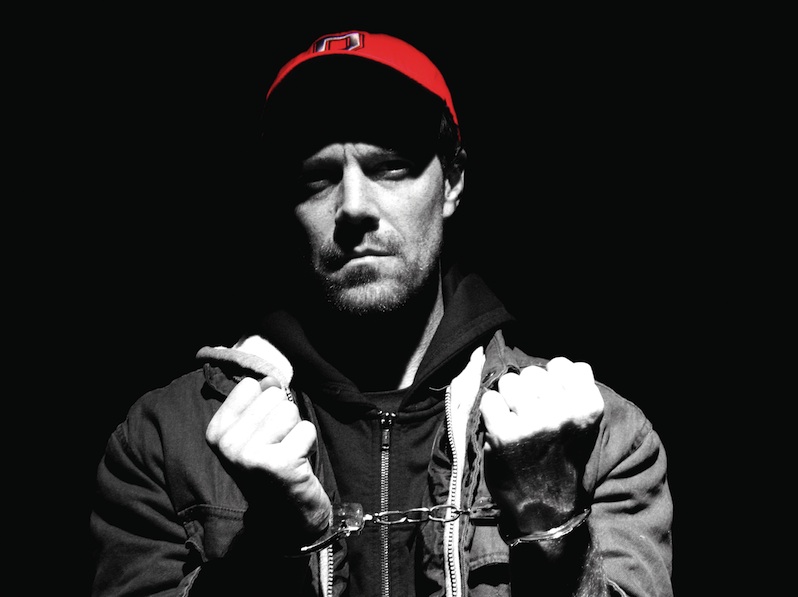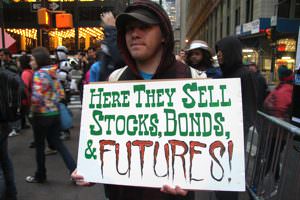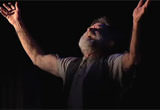The Actor and the Minister
In a time when corporate culture has marginalized our artists and those of compassion and vision, two such people merged for a moment at a Boston church. (Shown here, Michael Milligan in his one-man play.)In a time when corporate culture has marginalized our artists and those of compassion and vision, two such people merged for a moment at a Boston church. (Above, Michael Milligan in his one-man play.) Michael Milligan, in his one-actor play "Mercy Killers," portrays a man struggling with our dysfunctional health care system as his wife is dying of cancer. Photo by Nicholas Betito
1
2
Michael Milligan, in his one-actor play "Mercy Killers," portrays a man struggling with our dysfunctional health care system as his wife is dying of cancer. Photo by Nicholas Betito
1
2
“I left Juilliard to play the great roles in the regional theaters,” Milligan told me over dinner at the Café Pamplona in Cambridge, Mass., a day earlier. “I found that was difficult and precarious in terms of scratching together a living. I found that the structure was not conducive to great work. Our not-for-profits and big arts institutions are reflections of the corporate culture that runs everything in America. They are organized around maximizing efficiency. Rehearse eight hours because this is how long we have you and we are going to squeeze everything out of you. It is a five-week rehearsal period. In drama school we studied Stanislavski. And for Stanislavski you rehearsed for six months. You did not work eight hours a day. There was an incubation process over a long period of time. You had a company of actors. But in this current system, artists have no say over the creation of the art. Art is controlled by an army of administrators. They cater to an imagined subscriber base. These administrators determine what is done and how it is done. I began as an actor to feel like a day laborer or a mercenary. Actors are hired at the end of the process. They come in after the artistic director and managing director figure out what they are going to sell that next year to keep the doors open and pay for their $50 million building.”
“This play expresses my whole self,” he went on. “It expresses my feelings as a human being. Being hired to do something by a casting director does not compare to this. I collaborate now with activists, people who are grateful that someone cares about what they care about. An actor should have agency. He or she should be part of the collaborative process. We should have a say about what is art. But this means often going out on your own.”
Milligan was a member of a working group of Occupy Wall Street called Health Care for the 99 Percent. He works with the advocacy group Health Care Now. He is committed to theater that tells the story of ordinary people, that allows audiences to see themselves and their experiences reflected on stage. He wants to make people think about their place in the world and the systems of power that dominate their lives. Art is not about entertainment or spectacle. It is about transformation. And by the time Milligan had finished performing the play June 30 he had visibly shaken his audience of about 40 people.
I helped put the chairs away after the performance. I had been in that hall 31 years earlier with Terry Burke. He had brought me over to see the parish. The church was barely surviving in 1983, reduced to about three dozen members, many elderly. It was not clear that it would endure. Burke was nervous, maybe even apprehensive, and excited.
The church is flourishing now. When I went to Burke’s retirement party in the church hall a week before the play, there were about 200 people. He had preached to them innumerable times, visited them in hospitals, conducted the funerals of their fathers, mothers and sometimes their spouses or children. He had comforted them in moments of grief, loss and depression. Among those at the party were young men and women whose lives had been defined by the community he formed around the church. And there were children who will enter that community without him.
Being a minister is like being an actor. The work is ephemeral. It is about personal transformation, empathy and self-reflection. It does not define its worth by profit. It posits that our role in life is to make the world a better place, to protect the weak, to take care of the sick and to love our neighbor as our self. It celebrates the majesty and musicality of language. But those who dedicate their lives to beauty and truth have no place in the corporate state. What does not feed the mania for profit and the cult of the self is superfluous and often ridiculed.
At Burke’s request I read the T.S. Eliot poem “Marina” at his retirement party. The poem is built around Shakespeare’s “Pericles.” The final plays of Shakespeare are filled with poignant reunion scenes, moments when loved ones mysteriously return after being lost. In “Pericles” a father regains a daughter he thought was dead. Shakespeare reminded us at the end of his life that it is those around us, those we love, who matter most.
Eliot uses the metaphor of water in the poem to define the course of our existence. Water flows from streams and rivers, expanding and contracting like our lives, until merging into the vastness of the sea. The place where all waters meet is the place of death. Pericles is conscious of this, even as he rejoices in his reunion with his daughter. In Eliot’s poem the unnamed Pericles asks that he be able to remember, even in death, the sound of his daughter’s joy, the “Whispers and small laughter between leaves and hurrying feet / Under sleep, where all the waters meet.”
Great actors, like great ministers, know that love and empathy must be honored if we are to be fully human and create sustaining communities. It is a message that is harder and harder to hear amid the din of the corporate state. It is a message that is deeply subversive to capitalists bent on ceaseless exploitation. Those who bring us this message call us back to our better selves. Milligan did it from a stage. Burke did it from his pulpit. Heed them.
Your support matters…
SUPPORT TRUTHDIG
Independent journalism is under threat and overshadowed by heavily funded mainstream media.
You can help level the playing field. Become a member.
Your tax-deductible contribution keeps us digging beneath the headlines to give you thought-provoking, investigative reporting and analysis that unearths what's really happening- without compromise.
Give today to support our courageous, independent journalists.






You need to be a supporter to comment.
There are currently no responses to this article.
Be the first to respond.